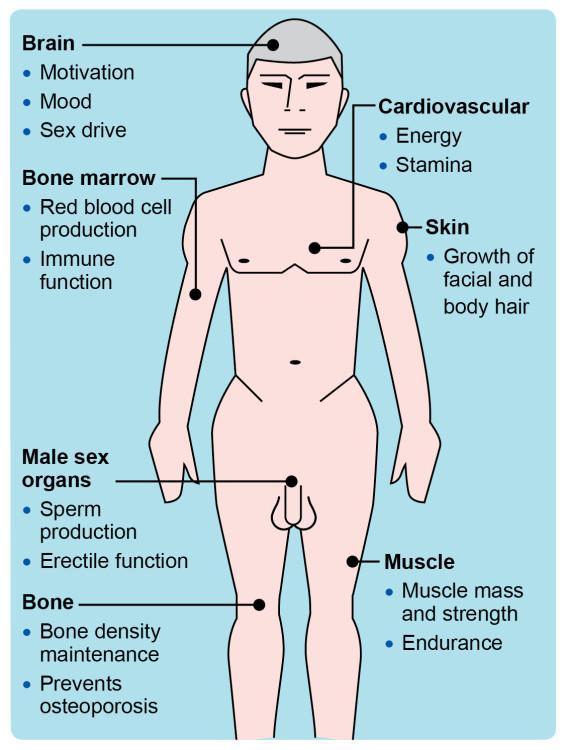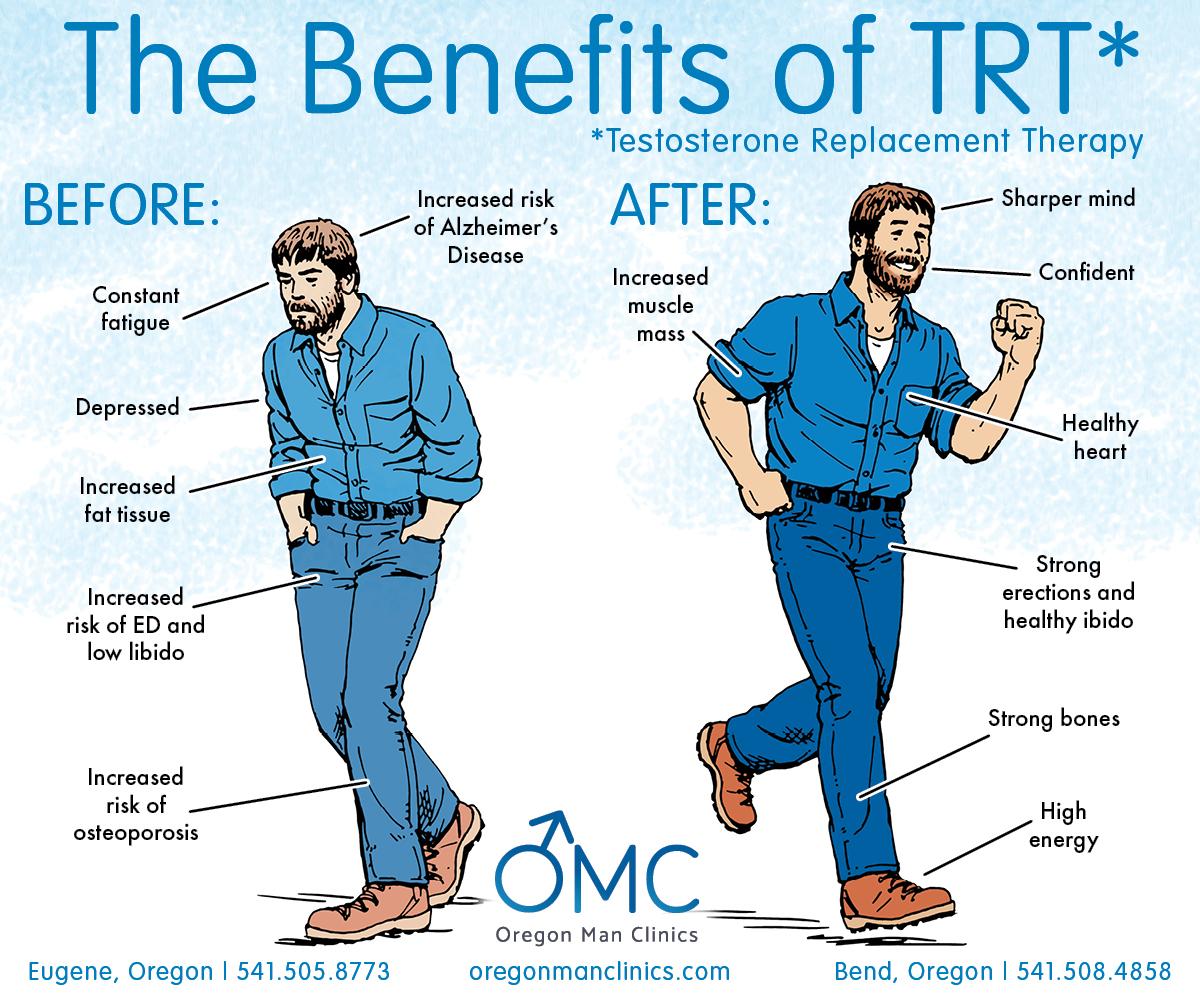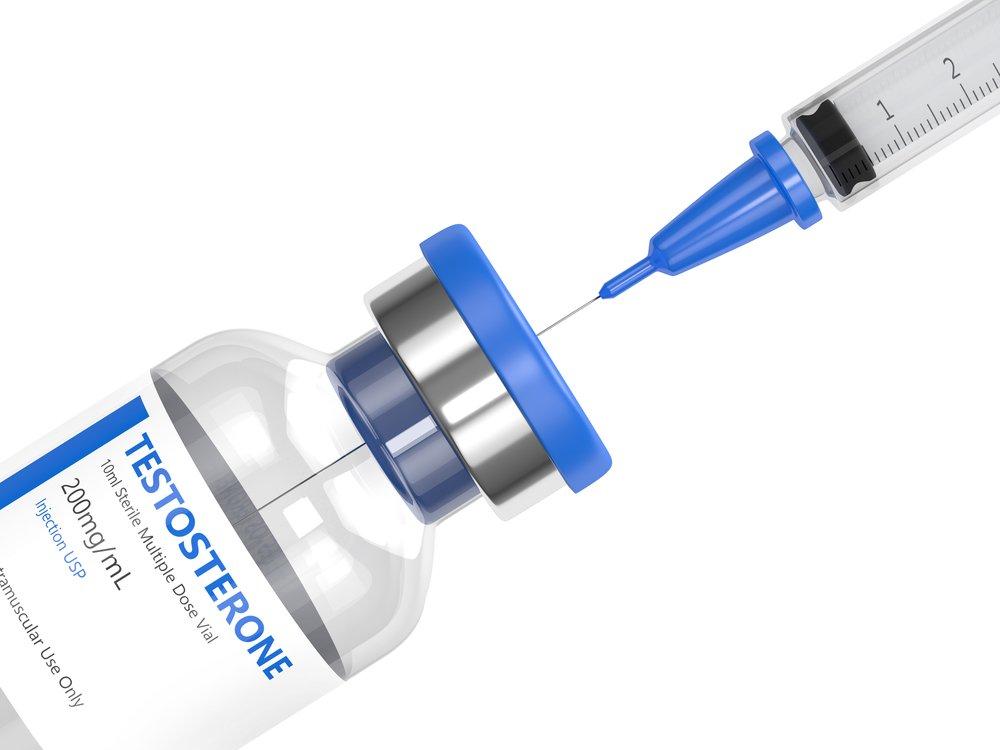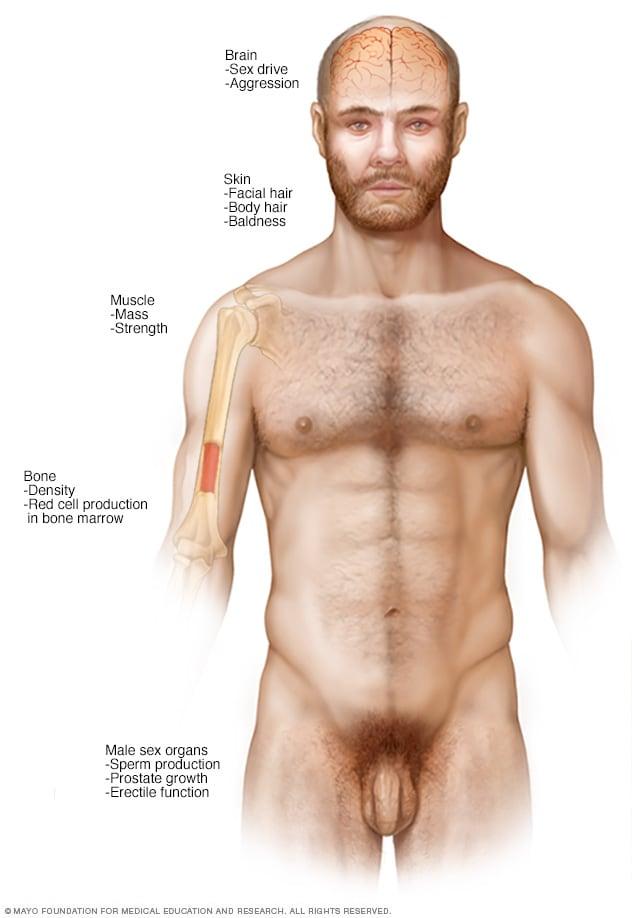In an age where the quest for vitality and well-being governs our lifestyles, the conversation around hormones—particularly testosterone—has gained significant traction. Once relegated to the shadows of medical discourse, testosterone therapy has surged into the spotlight as a potential elixir for those wishing to reclaim their zest for life. As we delve into the intricacies of this therapy, we invite you to explore its implications on vitality, from enhanced energy levels and improved mood to the controversies surrounding its use. With an ever-growing body of research and evolving societal perspectives, understanding testosterone therapy may not only illuminate the path to renewed vigor but also raise important questions about health, aging, and what it truly means to feel alive. Join us as we unpack the science, the benefits, and the concerns associated with testosterone therapy, paving the way for informed choices in the pursuit of longevity and vitality.
Understanding Testosterone and Its Role in Vitality
Testosterone, often dubbed the “male hormone,” plays a multifaceted role in both men’s and women’s health. Beyond its well-known contributions to sexual function and muscle strength, it is pivotal in regulating various bodily functions, thus influencing overall vitality. Key functions of testosterone include:
- Enhancing energy levels and reducing fatigue
- Promoting muscle mass and strength
- Supporting bone density, hence lowering risks of osteoporosis
- Influencing mood and emotional well-being
- Regulating metabolism, contributing to weight management
As individuals age, testosterone levels naturally decline, which can lead to a variety of symptoms such as reduced energy, decreased libido, and even mood swings. Understanding this hormonal shift is crucial for appreciating the potential benefits of therapy. A recent study highlights that testosterone therapy may restore vitality by addressing these age-related changes. The following table summarizes the benefits associated with balanced testosterone levels:
| Benefit | Impact |
|---|---|
| Increased Energy | Higher motivation and productivity |
| Improved Libido | Enhanced sexual enjoyment and intimacy |
| Better Mood | Reduced feelings of anxiety and depression |
| Weight Management | Facilitated fat loss and muscle gain |

The Signs of Low Testosterone: Recognizing the Symptoms
Low testosterone levels can manifest in various ways, often leading to noticeable changes in both physical and mental health. Individuals experiencing this condition may find themselves facing fatigue, reduced muscle mass, or even shifts in their emotional well-being. It’s essential to recognize these signs early, as they can significantly affect one’s quality of life. Common symptoms include:
- Decreased libido: A noticeable drop in sexual desire can be an indicator of low testosterone.
- Difficulty concentrating: Many report experiencing cognitive sluggishness or a decline in mental sharpness.
- Increased body fat: Those with low testosterone might notice unwanted weight gain, particularly around the abdomen.
- Reduced bone density: Low levels can lead to weaker bones, increasing the risk of fractures.
Additionally, the emotional toll of low testosterone shouldn’t be overlooked. Many men may experience feelings of depression, anxiety, or decreased motivation, creating a cycle that can be hard to break. Keeping track of these symptoms can be crucial. Consider the following table that illustrates the relationship between testosterone levels and common symptoms:
| Symptom | Potential Impact |
|---|---|
| Low libido | Reduced intimacy and relationship strain |
| Fatigue | Decreased productivity and energy levels |
| Mood swings | Affecting personal and professional relationships |
| Muscle loss | Difficulty maintaining strength and fitness |

Exploring the Benefits of Testosterone Therapy
Testosterone therapy offers a pathway to revitalization for individuals experiencing low energy, decreased libido, or mood swings. This treatment can lead to a significant enhancement in overall well-being, as it helps restore hormonal balance in the body. Many patients report improvements in various areas of life, including:
- Increased Energy Levels: Many individuals experience a boost in vigor and stamina, allowing for greater participation in everyday activities.
- Enhanced Mood: Testosterone therapy has been linked to reductions in anxiety and depressive symptoms, promoting a more positive outlook on life.
- Improved Libido: Revitalization of sexual health and desire is a common benefit, allowing for more fulfilling intimate relationships.
Additionally, testosterone therapy may contribute to the maintenance of lean muscle mass and reduction of body fat, which is essential for optimal health. By supporting metabolic functions, this therapy can enhance athletic performance and promote better physical fitness. Consider the following table that outlines the potential physical improvements associated with testosterone therapy:
| Physical Benefit | Result |
|---|---|
| Muscle Mass | ↑ Increased strength and endurance |
| Body Fat | ↓ Decrease in fat percentage |
| Bone Density | ↑ Improved strength and reduced fracture risk |

Evaluating Different Types of Testosterone Treatments
When exploring testosterone treatments, it’s essential to understand the various options available and how they can impact overall vitality. Each type of therapy comes with its unique method of administration and specific benefits. The most common forms include:
- Injections: Administered intramuscularly, providing a rapid increase in testosterone levels.
- Patches: Applied to the skin, delivering a steady supply of testosterone throughout the day.
- Gels: Easy to apply, allowing for transdermal absorption and convenience.
- Pellets: Implanted subcutaneously, offering a long-term testosterone release for several months.
When selecting a treatment, it’s crucial to consider factors such as dosage, ease of use, and personal health circumstances. To further assist in making informed decisions, consider the following comparative analysis:
| Type of Treatment | Administration Frequency | Potential Side Effects |
|---|---|---|
| Injections | Every 1-2 weeks | Injection site pain, mood swings |
| Patches | Daily | Skin irritation, headaches |
| Gels | Daily | Skin irritation, transfer to others |
| Pellets | Every 3-6 months | Infection risk, extrusion |
Safety and Risks of Testosterone Therapy
While testosterone therapy can offer numerous benefits including increased energy levels, improved mood, and enhanced libido, it is crucial to be aware of the potential risks associated with its use. Common side effects can include:
- Weight gain
- Acne and skin reactions
- Sleep apnea
- Increased body hair
- Fluid retention
Additionally, testosterone therapy may be linked to more serious health concerns. Potential risks include:
- Cardiovascular issues, such as heart attack or stroke
- Prostate enlargement or prostate cancer
- Changes in red blood cell levels, which can lead to blood clots
It is essential for individuals considering this treatment to consult with their healthcare provider to weigh the potential benefits against these risks. Understanding one’s personal health history and undergoing regular monitoring can make a significant difference in ensuring safety while pursuing enhanced vitality.
Integrating Lifestyle Changes for Enhanced Results
To truly maximize the benefits of testosterone therapy, integrating specific lifestyle changes can be a game-changer. Nutrition plays a crucial role; focusing on a diet rich in healthy fats, lean proteins, and colorful fruits and vegetables can enhance hormone production. Consider incorporating foods such as:
- Avocados – Packed with healthy fats.
- Spinach – A leafy green that aids in testosterone production.
- Eggs – A great source of protein and vitamin D.
Moreover, engaging in regular physical activity can boost your results significantly. A balanced routine of weight training and cardiovascular exercises not only helps maintain healthy body composition but also stimulates natural testosterone levels. Essential activities to consider include:
- Strength Training – Builds muscle mass and enhances metabolism.
- High-Intensity Interval Training (HIIT) – Effective for fat loss and hormone balance.
- Yoga and Stretching – Reduces stress, which is vital for hormone regulation.
| Activity | Frequency | Benefits |
|---|---|---|
| Strength Training | 3-4 times a week | Builds muscle and boosts testosterone |
| HIIT Workouts | 2-3 times a week | Increases metabolism and hormone levels |
| Yoga | 1-2 times a week | Reduces stress and improves hormonal balance |
Consulting Professionals: Making Informed Decisions
When considering testosterone therapy, it is essential to consult healthcare professionals who specialize in hormonal health. These experts guide individuals through the myriad of options available, ensuring that choices are made based on comprehensive assessments rather than assumptions. Engaging with professionals offers the following benefits:
- Personalized Evaluations: Tailored assessments based on individual health profiles.
- Evidence-Based Recommendations: Insights grounded in the latest research and clinical studies.
- Monitoring Progress: Regular follow-ups to track the effectiveness and adjust treatment plans.
Moreover, a clear understanding of potential risks and benefits associated with testosterone therapy can empower individuals to make informed decisions. Discussing aspects such as dosage, duration, and delivery methods with a knowledgeable practitioner can illuminate the path to enhanced vitality. Additionally, consider reviewing the following table for a quick overview of testosterone therapy options:
| Option | Description | Frequency |
|---|---|---|
| Injections | Administered intramuscularly, providing high bioavailability. | Every 1-2 weeks |
| Topical Gels | Applied daily to the skin, convenient and discreet. | Daily |
| Patches | Transdermal patches worn on the skin for steady absorption. | Daily |
Q&A
Q&A: Unlocking Vitality – The Role of Testosterone Therapy
Q: What is testosterone therapy, and how does it work?
A: Testosterone therapy involves the administration of testosterone to individuals who have low levels of this hormone. It comes in various forms, including injections, patches, gels, and pellets. Testosterone plays a crucial role in several bodily functions, including muscle mass, bone density, and the regulation of mood and energy levels. By restoring testosterone to optimal levels, the therapy aims to enhance overall vitality.
Q: Who might benefit from testosterone therapy?
A: Testosterone therapy is primarily designed for men experiencing symptoms associated with low testosterone levels, a condition known as hypogonadism. Common symptoms include fatigue, reduced muscle mass, decreased libido, and mood swings. However, some studies suggest that certain women may also experience benefits from testosterone therapy, such as improved libido and mood, especially during menopause.
Q: What are the potential benefits of testosterone therapy?
A: The therapy may improve energy levels, enhance mood, increase muscle strength and endurance, boost libido, and support cognitive function. Many individuals report feeling more vibrant and youthful after starting treatment. However, outcomes can vary significantly based on individual circumstances.
Q: Are there any risks associated with testosterone therapy?
A: Yes, like any medical treatment, testosterone therapy carries certain risks. Potential side effects can include acne, sleep apnea, an enlarged prostate, and an increased risk of cardiovascular issues. Before undergoing therapy, it’s crucial to have a thorough discussion with a healthcare provider to weigh the benefits and risks.
Q: How is the effectiveness of testosterone therapy measured?
A: Effectiveness can be measured through a combination of blood tests, symptom tracking, and quality-of-life assessments. Regular follow-up appointments allow healthcare providers to monitor hormone levels and adjust dosages accordingly. Patients are encouraged to communicate openly about their experiences during therapy to ensure the best possible outcomes.
Q: Who should NOT consider testosterone therapy?
A: Individuals with certain health conditions, such as prostate cancer, breast cancer, or severe sleep apnea, should avoid testosterone therapy. It’s crucial for potential candidates to undergo a comprehensive medical evaluation to determine their suitability for treatment.
Q: Is testosterone therapy a lifelong commitment?
A: The duration of testosterone therapy varies from person to person. Some may find sustained benefits over time, while others may only require therapy for a limited period. Regular consultation with a healthcare provider will help determine the best course of action based on evolving health needs.
Q: What lifestyle changes can enhance the effects of testosterone therapy?
A: While testosterone therapy can be life-changing, adopting a holistic approach will maximize its benefits. Regular exercise, a balanced diet, adequate sleep, and stress management are essential components that can complement the effects of therapy and enhance overall vitality.
Q: Is testosterone therapy suitable for everyone looking to boost vitality?
A: Not necessarily. Testosterone therapy is not a one-size-fits-all solution. It’s intended for individuals with diagnosed low testosterone levels. For others seeking vitality, exploring various lifestyle interventions, such as nutrition, exercise, and mental health support, may be more appropriate. Always consult with a healthcare provider for personalized recommendations.
Q: What is the takeaway message regarding testosterone therapy and vitality?
A: Testosterone therapy can be a valuable tool for those diagnosed with low testosterone levels, offering the promise of increased vitality. However, it is essential to approach this therapy thoughtfully and under medical guidance, exploring all available options for enhancing quality of life and overall well-being.
In Summary
As we conclude our exploration of testosterone therapy and its potential impact on vitality, it is essential to remember that every individual’s journey is unique. While testosterone may offer promising benefits for some, it is not a one-size-fits-all solution. The quest for vitality is a multifaceted endeavor that encompasses not only hormonal balance but also a holistic approach to lifestyle choices, nutrition, and mental well-being.
Individuals considering testosterone therapy are encouraged to engage in open conversations with healthcare providers, weighing the potential risks and benefits. After all, the path to revitalization is as much about informed decisions and self-awareness as it is about biology and science.
In this ever-evolving landscape of health and wellness, staying informed—and cautious—is key. Whether you find empowerment in testosterone therapy or through other avenues, may your pursuit of vitality lead you to a life rich in energy, balance, and fulfillment. Thank you for joining us on this enlightening journey.









